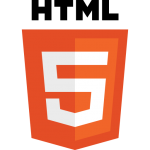 Qoppa Software has released a new HTML-based solution allowing to annotate and markup PDF documents in any browser and platform (Windows, Mac, Linux, iOS, Android) without any plugin in order to replace their existing applet-based solutions.
Qoppa Software has released a new HTML-based solution allowing to annotate and markup PDF documents in any browser and platform (Windows, Mac, Linux, iOS, Android) without any plugin in order to replace their existing applet-based solutions.
If you are an existing Qoppa Software customer running jPDFNotes and jPDFEditor in an applet inside the browser, you may have seen that some browsers are discontinuing support for Java applets. Specifically, some browsers are discontinuing support for the NPAPI plugin interface, which is what the Java applet container uses to run inside the browser. This means that you will not be able to run jPDFNotes or jPDFEditor in this manner on browsers that are making this change.
We have released a new module in our PDF Automation Server product to address this, so that you can continue to display and markup PDFs in a way that is fully integrated in your application, right in the browser, now without a need for any plugin.
The PDF Automation Server PDF HTML markup module delivers the following features:
- Convert PDF to HTML5 and serve the content directly to the browser. Converting to HTML5 means that the browser is displaying the PDF content directly, so there is no need for a plugin and therefore there is no plugins needed at all. The HTML5 content can be displayed inside the browser as part of your web application and is supported by all browsers, including in mobile devices.
- Browser side module, developed in HTML and JavaScript that provides viewing, navigation and markup tools. This module interacts with the PDF Automation Server to request PDF content on demand, displays the content to the end user, and provides a set of annotation tools to add and edit annotations on the PDF.
- On save, the browser side module will package and send back the annotations edits to the PDF Automation Server to be merged back into the PDF document.
- PDF Automation Server delivers this module, and additional functionality, through a REST API, providing many more PDF functions in addition to the markup functions. This gives you flexibility in accessing the server from your web applications as well as the PDF functions that you can offer to your end users. The server is self-contained and requires no additional software, once you install, you can be up and running with very little effort.
Read more about PDF Automation Server Markup module and download an evaluation version on Qoppa’s website.
Contact us if you have any questions about PDF Automation Server and any of its features.
Follow